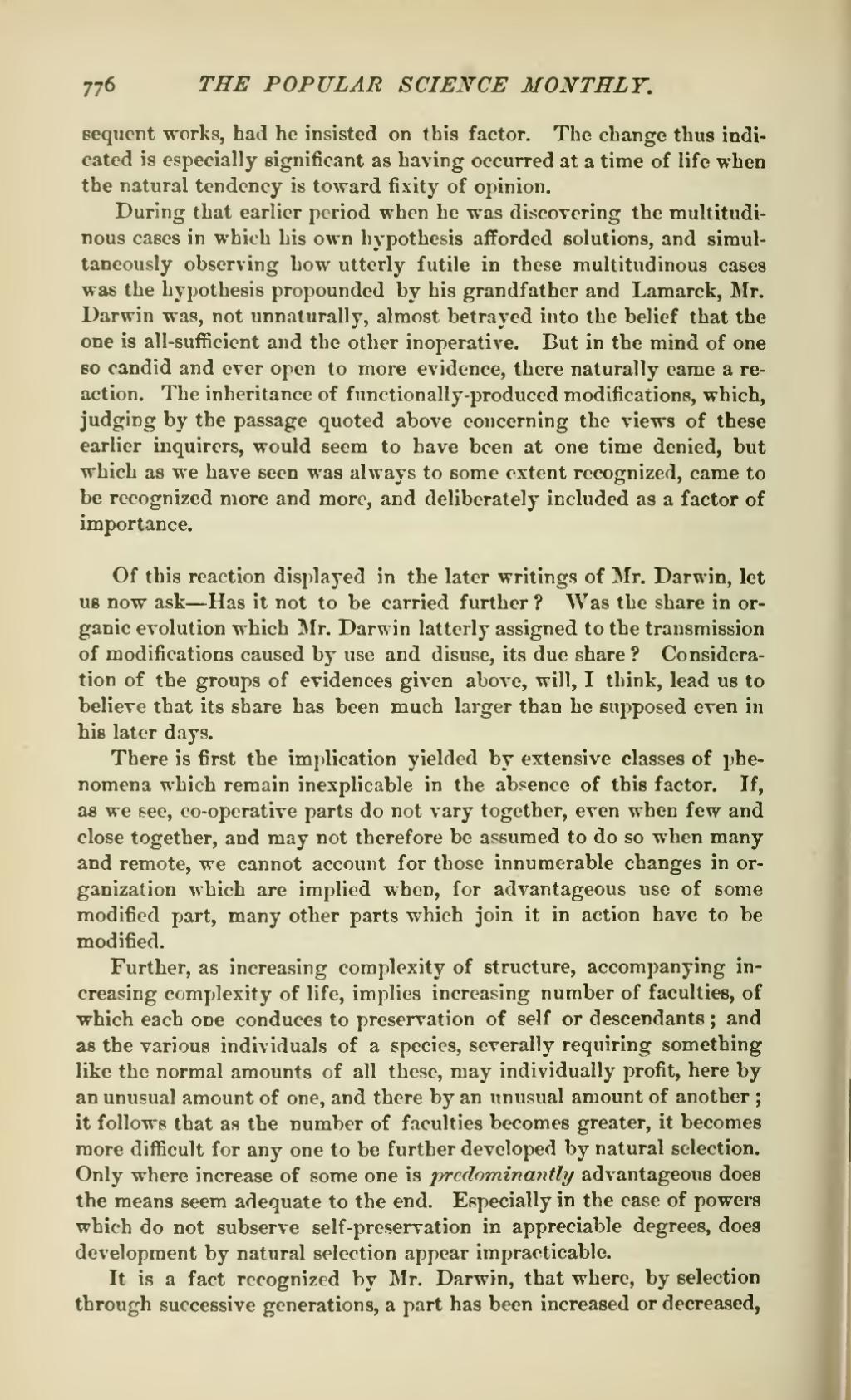sequent works, had he insisted on this factor. The change thus indicated is especially significant as having occurred at a time of life when the natural tendency is toward fixity of opinion.
During that earlier period when he was discovering the multitudinous cases in which his own hypothesis afforded solutions, and simultaneously observing how utterly futile in these multitudinous cases was the hypothesis propounded by his grandfather and Lamarck, Mr. Darwin was, not unnaturally, almost betrayed into the belief that the one is all-sufficient and the other inoperative. But in the mind of one so candid and ever open to more evidence, there naturally came a reaction. The inheritance of functionally-produced modifications, which, judging by the passage quoted above concerning the views of these earlier inquirers, would seem to have been at one time denied, but which as we have seen was always to some extent recognized, came to be recognized more and more, and deliberately included as a factor of importance.
Of this reaction displayed in the later writings of Mr. Darwin, let us now ask—Has it not to be carried further? Was the share in organic evolution which Mr. Darwin latterly assigned to the transmission of modifications caused by use and disuse, its due share? Consideration of the groups of evidences given above, will, I think, lead us to believe that its share has been much larger than he supposed even in his later days.
There is first the implication yielded by extensive classes of phenomena which remain inexplicable in the absence of this factor. If, as we see, co-operative parts do not vary together, even when few and close together, and may not therefore be assumed to do so when many and remote, we cannot account for those innumerable changes in organization which are implied when, for advantageous use of some modified part, many other parts which join it in action have to be modified.
Further, as increasing complexity of structure, accompanying increasing complexity of life, implies increasing number of faculties, of which each one conduces to preservation of self or descendants; and as the various individuals of a species, severally requiring something like the normal amounts of all these, may individually profit, here by an unusual amount of one, and there by an unusual amount of another; it follows that as the number of faculties becomes greater, it becomes more difficult for any one to be further developed by natural selection. Only where increase of some one is predominantly advantageous does the means seem adequate to the end. Especially in the case of powers which do not subserve self-preservation in appreciable degrees, does development by natural selection appear impracticable.
It is a fact recognized by Mr. Darwin, that where, by selection through successive generations, a part has been increased or decreased,
